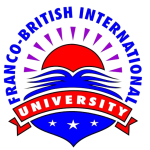BSc Mass Communication
July 31, 2023 2023-08-03 21:43BSc Mass Communication
"Learn to craft your media narrative and how to shape society with every story."
Course Structure
Program run for four (4) academic years for UTME candidates and three (3) years for Direct Entry candidates.
4 Years Program
Intakes: From June
Year 1 - 100 Level
African Communication Systems
Introduction to Mass Communication
History of Nigerian Mass Media
Introduction to English language
Introduction to Computer & Application
English & Communications
Introduction to French Language I
American Communication Systems
Introduction to Public Relations
Fundamentals of Public Speaking
Writing for the Mass Media
History and Philosophy of Science
Use of Library, Study Skills & ICT
Introduction to French Language II
Year 2 - 200 Level
Theories of Mass Communication
Media and Society
Media Law and Ethics
Elements of Photo Journalism
Investigative Reporting
Elements of Statistics
Philosophy, Logic & Human Existence
French Language I
News Reporting and Writing
Public Relations
Editing & Graphic Communication
Practice of Photo Journalism
Educational Broadcasting
Elements of Advertising
Entrepreneurship and Innovation
Year 3 - 300 Level
Newspaper Production
Critical Writing and Report
Mass Com and National Dev.
Media Law and Ethics II
Mass Media in Nigeria
Media Management
Peace and Conflict Resolution
French Language II
Editing and Graphic Communication
News Reporting and Writing
Editorial Writing
Practice of Advertising
Int’l Public Relations
Research Method in Mass Com I
Venture Creation
Year 4 - 400 Level
Practice Of Public Relations
Elements Of Broadcasting
Research Method in Mass Com II
Integrated Marketing Communication
Media Law and Ethics III
French Language III
Advertising in Nigeria
Development Communication
Online Journalism
Media and Gender
Advanced Communication Theories
Research Project
Entry Requirements
Entry into 100 Level
- pass Unified Tertiary Matriculation Examination (UTME) with minimum required points in Any three Subjects from Arts or Social Science subjects and Use of English.
- pass FBIU Screening/Post UTME.
- have Credit level in 5 subjects (English, Mathematics, Biology, Chemistry and Physics), the Senior Secondary School Certificate Examination (SSCE) of the West African Examination Council (WAEC) or together with an appropriate pass in the Joint Admission & Matriculation Board (JAMB) Examination, at not more than two (2) sittings.
200 Level Direct Entry
Candidates with pass in the General Certificate of Education (GCE) at advanced level in Physics, Chemistry and Biology (or Zoology) and also with a minimum of 5 credits in the following subjects – Physics, Chemistry, Biology, English Language and Mathematics at ‘O’ level: in addition to satisfying the minimum entry requirements through JAMB, or graduates with at least a second class honours degree (22) in related disciplines, but must also have a minimum of 5 credits in the subjects stipulated at ‘O’ level. Holders of Medical Laboratory Technician (MLT) Certificate who must also have a minimum of 5 credits in the subjects stipulated at O’ level are eligible. Holders of Interim Joint Matriculation Board (IJMB) certificate with biology, chemistry physics subjects combination with at least 12 points, and also have minimum of 5 credits in the subjects listed above.
Transfer to the program (Intra/Inter University)
This is applicable for candidates that satisfy entry level and direct entry level above and other regulations of the University as reviewed from time to time.


